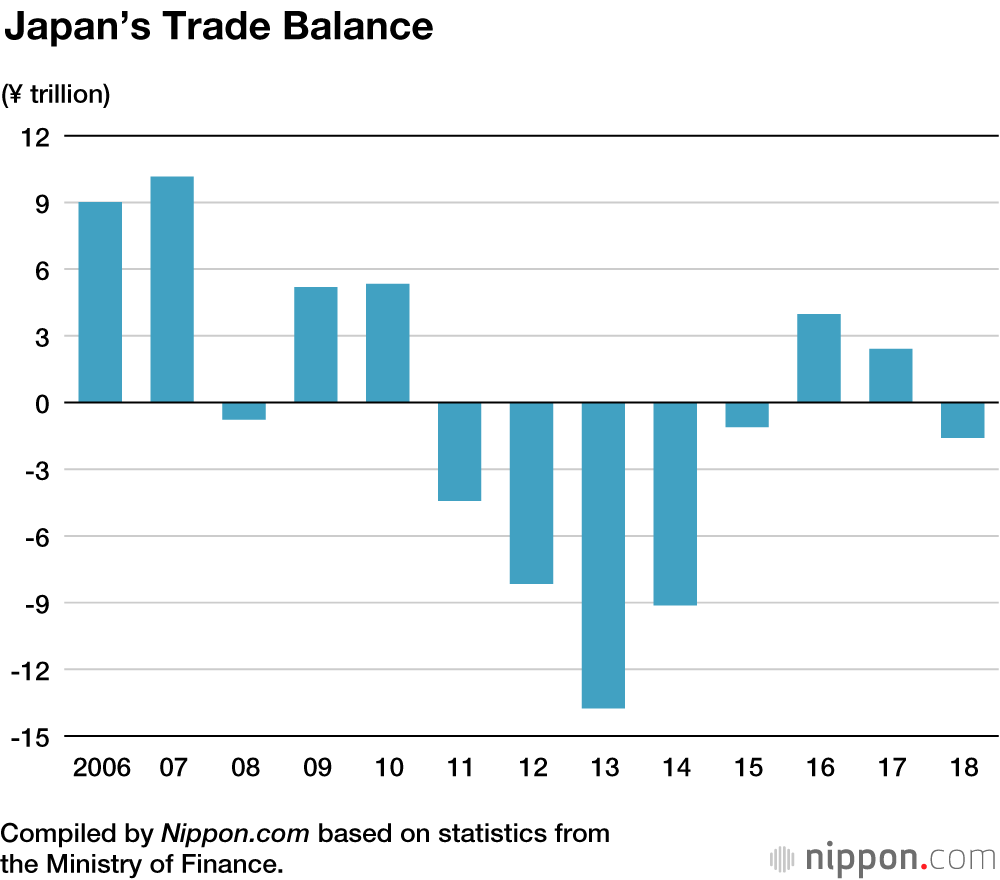
China Slowdown Major Factor in Japan Trade Deficit
Economy- English
- 日本語
- 简体字
- 繁體字
- Français
- Español
- العربية
- Русский
Preliminary trade statistics released in mid-April by the Ministry of Finance on a customs-cleared basis show that Japan posted a ¥1.59 trillion trade deficit in fiscal 2018. Factors underlying the annual deficit, which is the first in three years, include the slowdown in the Chinese economy, flat demand for exports to Asia, and rising import prices due to a rise in the cost of oil.
An intensifying trade war between the United States and China, starting from around the summer of 2018, has led to a growing deceleration of the Chinese economy. The slump in China, which is the center of production and consumption in Asia, has spread to other countries in the region. Trade statistics for March 2019 show that exports to Asian countries (including China) fell by 5.5% compared to the same month the previous year, marking the fifth straight monthly decline since November 2018.
The impact of the current trade deficit will be hard to ignore given the Japanese economy’s heavy reliance on exports. The Ministry of Economy, Trade, and Industry announced in late April that industrial production for March is “in a weak tone recently,” and the ministry revised its forecast downward based on the sluggish situation that month.
The future trade environment will depend largely on the policies enacted by US President Donald Trump. The US-China trade negotiations that began in 2018 have run into difficulties, and the US government has taken the step of raising the tariff rate on Chinese products. The dispute between the two countries concerns not just imports of products to the United States but also future hegemony over the digital economy, so it seems extremely difficult for the two sides to reach an agreement.
Amid this situation, in April 2019 Japan began negotiations with the United States to reach a trade agreement. The Japanese government has said that the negotiations are beginning under favorable conditions, but there are strong calls in the United States to take the hard line of restricting the number of imported Japanese cars and introducing a “currency manipulation” provision in the agreement to prevent a weak exchange rate of the yen to the US dollar. Some economists have noted the risk that the situation for Japanese exports to the United States could worsen if President Trump adopts a hard line to bolster his reelection hopes.
(Translated from Japanese. Banner photo © Pixta.)
